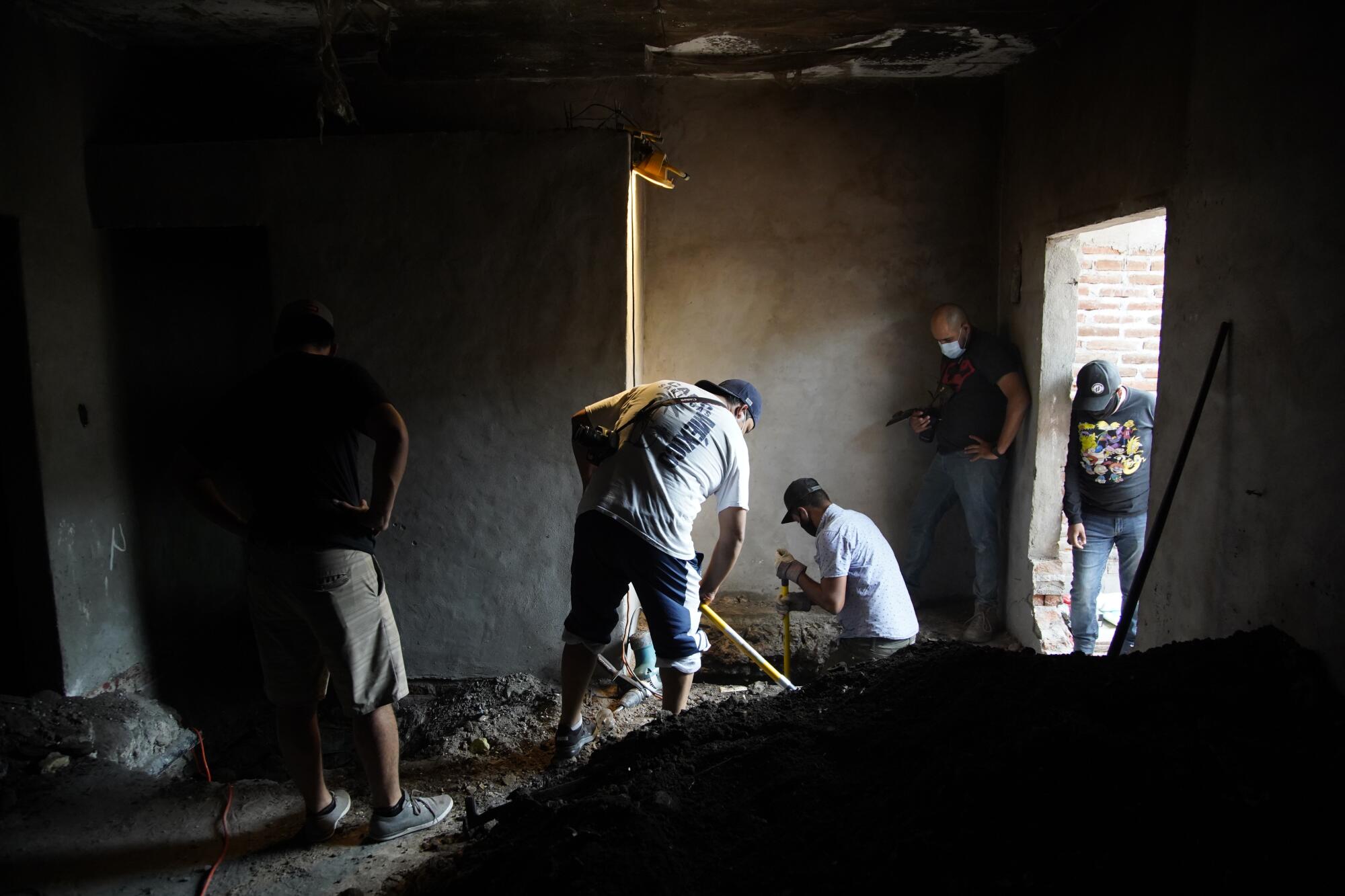
TIJUANA — A smell of death draped the unfinished two-story house on Calle Loma Alta on Tijuana’s eastern side. Neighbors report sometimes hearing screams coming from the abandoned property.
Inside, the floor was littered with empty Coca-Cola bottles and dozens of children’s toys and grade school notebooks. Clothes were piled everywhere, and partially burnt mattresses were propped against the door frames, acting as makeshift, sound-absorbing doors closing off several rooms.
In one, heavy chains sat atop wooden planks nailed to the floor. Rocks with more chains attached were piled nearby.
Spray-painted in red in a corner: the words “Te Amo.” I love you. Parents believe their children once were chained to the floor here. In the last 11 months, the remains of four teenage boys have been discovered on this property.
But not by police.
The bodies were unearthed by parents who, led there by a tipster, have been searching for the remains of their children. The house in the Colonia Campos neighborhood, they said, belongs to a former Tijuana police officer who they suspect is in league with drug cartels.
On a warm September Saturday morning, before the parents took turns drilling into the concrete foundation, one of the mothers got an anonymous call from an Ensenada phone number instructing her where to dig: about a yard and a half under the foundation, on the right side of the bathroom, under a tarp and piles of trash.
There, the caller told Bárbara Martínez, she would find her son César. She put the man on the speaker, so the other parents could hear. Along with César, he added, are other corpses.
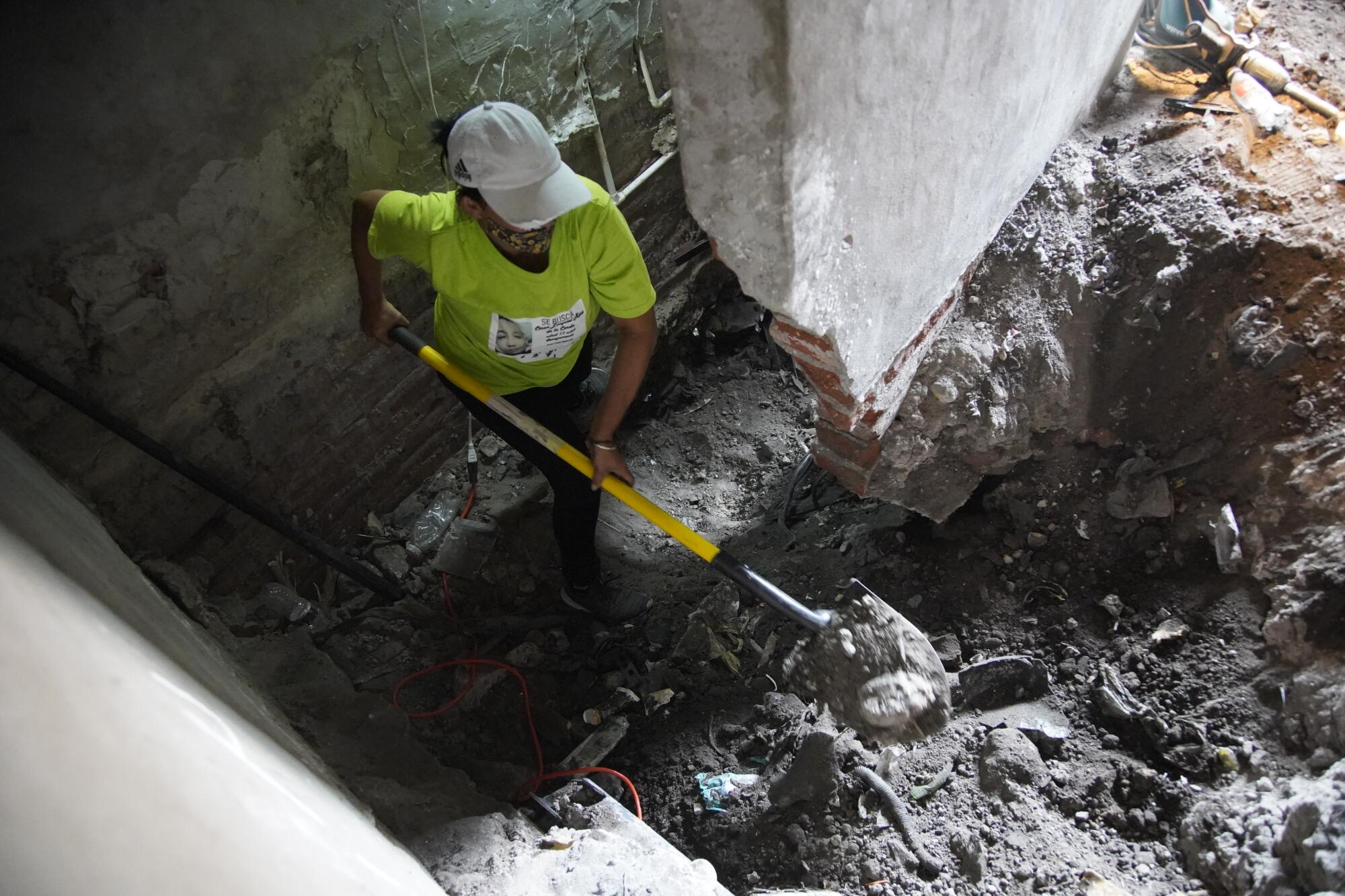
Martínez spoke with him politely, pushing aside her fear and anger for the sake of her son, and for the parents of others who have gone missing.
After hanging up, she said, “It’s my son. And even if they threaten me or do something to me, I don’t care because that man is an animal for leaving my son buried here.”
Outside, Baja California police officers stood at the property line, threatening to arrest the parents who had stacked tires and spare boards to block off the driveway entrance to the property. The police — officials have told parents that their presence constitutes trespassing and that they could face arrest and even jail time — took pictures of each person, including a dozen reporters, and noted all the license plate numbers of the vehicles parked outside.
Even though bodies have been found on the site, parents say the police are not investigating. Baja California Gov. Jaime Bonilla said he could not comment because “there’s an investigation in place,” but the location was never sealed off with crime scene tape during the last 11 months and state police officials said they never entered to collect fingerprints and other potential evidence at the house.
Shortly before noon, a few officers came onto the property, climbing a ladder they had placed against a retaining wall. There was yelling from both sides, and some parents formed a line, refusing to let the police advance. Other parents continued digging.
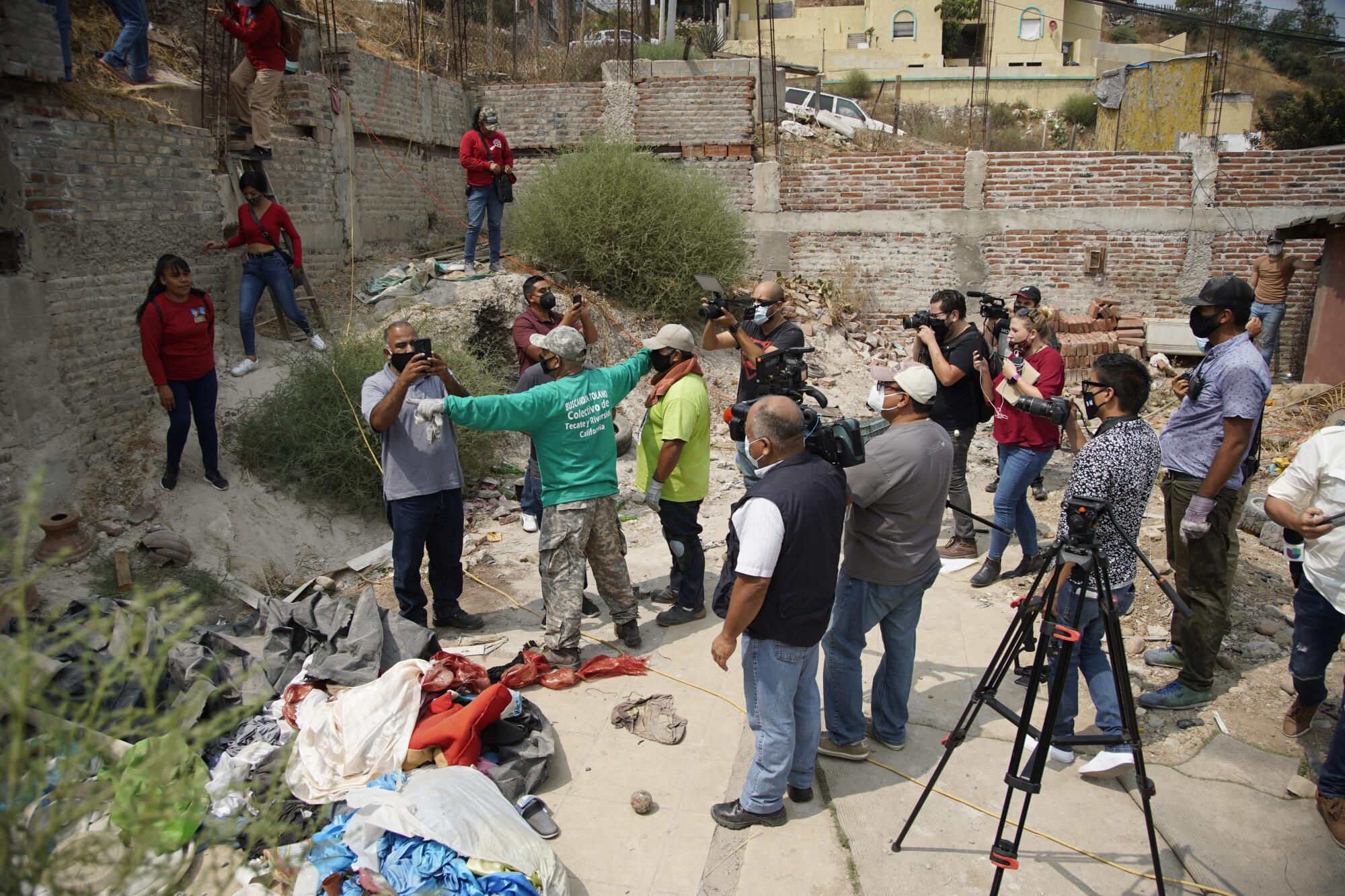
Jesús Varajas Chairezat, an American whose brother went missing from the border city of Tecate in 2019, put out both hands, blocking the authorities with his body and yelling until they retreated.
This particular group, Colectivo de Madres en Búsqueda de sus Tesoros Perdidos, or Collective of Mothers Searching for Their Lost Treasures, is among hundreds formed by parents throughout Mexico to help one another look for the remains of their missing children. They find safety in numbers and comfort one another during and after the searches.
It’s a response to what they describe as failure by the government to investigate the swelling numbers of desaparecidos — the disappeared. Across Mexico, more than 61,000 citizens have vanished from 2006 to 2019, federal figures show.
The vast majority are men in their early 20s. Some had links to crime, but some disappear for no clear reason, perhaps unintended casualties of the country’s soaring cartel-fueled violence.
“The Mexican government is not capable of protecting its citizens,” said Varajas, 63, a Riverside resident.
Martínez’s son disappeared from Tijuana’s Urbi Villa Prado II neighborhood in October 2018. César was 17.
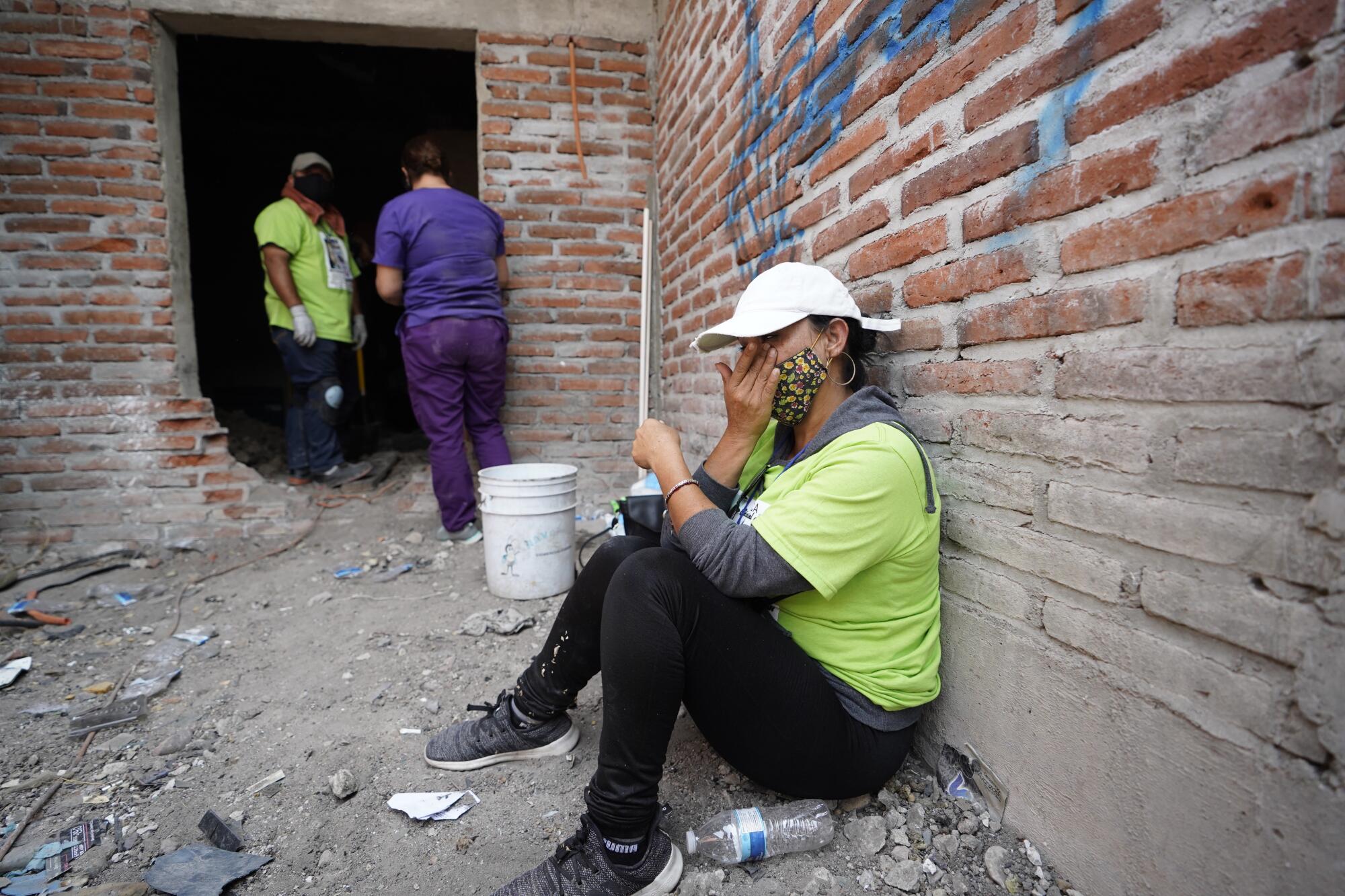
The remains of his best friend and two acquaintances are among the four bodies that have been found during previous parent-led searches of the Calle Loma Alta property.
Martínez does not know the name of the man who called during the dig. She said she knows only that he is a powerful person in Ensenada and not the owner of the property.
His motivation for the tips is unclear. Though he’s directed parents to their loved ones, he’s also threatened them.
“One time he told me: ‘You know what, lady? Go ahead and take your son out of that house and enjoy burying him because after that, I’m coming for you. I’m going to kill you because you have discovered my graveyard,’” Martínez said.
She shrugged off the threat, saying she told him: “Look at me, I’m already dead inside. You killed my son. What else can you do to me?”
A different tipster originally directed Martínez to the home nearly a year ago, and that led to the discovery of the four bodies; he had seen her posts on Facebook, on which she had described the painful search for her son. That man was fatally shot days after passing on the tip, she said. She asked that his name not be used, for fear of endangering his family.
Typically, parents search the rugged and remote hillsides outside Tijuana for mass graves, known as fosas clandestinas. Since June, the parent collectives have discovered more than two dozen bodies.
But the mission this Saturday was unusual because it took place inside a home, where parents typically don’t dare to search because such properties often are in gang-controlled neighborhoods.
“There are so many houses just like this one all throughout Tijuana where hundreds of people are buried. There are so many mothers who have no idea what happened to their children,” said Varajas, who used power tools and a shovel to dig for hours before lying down on the ground, exhausted.
After he woke up from a nap, he resumed digging.
“Why do I do it? These people are victims just like I am a victim, and everyone has turned their back on them, including the United States,” he said. “These cartels tell these kids they have to sell drugs or they’ll be killed. When they refuse, they kill them. It’s that simple. They’re either turned into criminals or corpses.”
Nearby, Emma Medrano of San Diego quietly watched Varajas dig several feet into the earth under the house’s foundation. Her 18-year-old son, Miguel Rendon, went missing on May 29 from a motel on Boulevard Cuauhtemoc in Tijuana.
“Every time I see they have found bodies, I think it could be my son. I don’t want to believe he is dead, but it’s already been more than three months,” Medrano said.
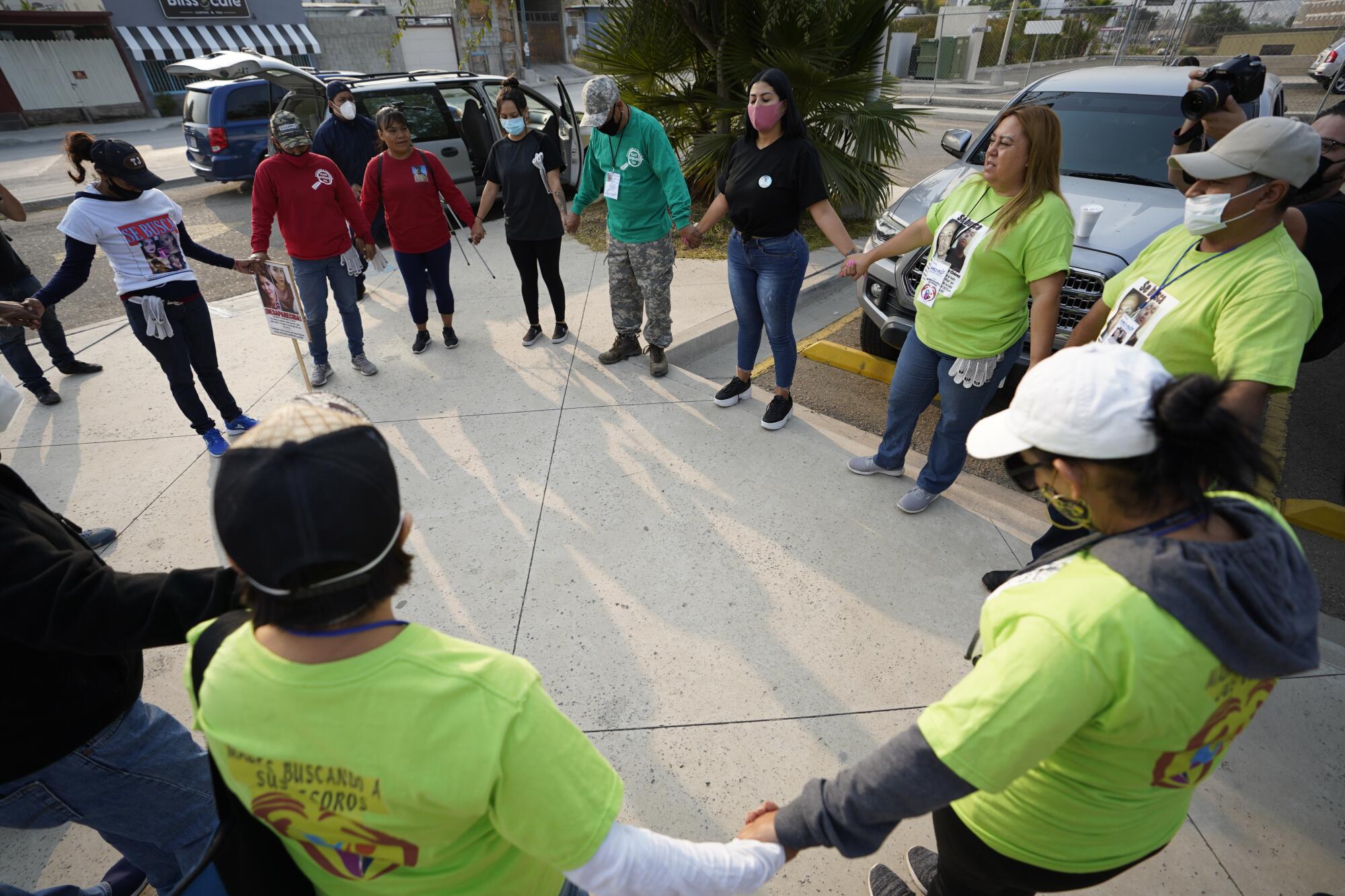
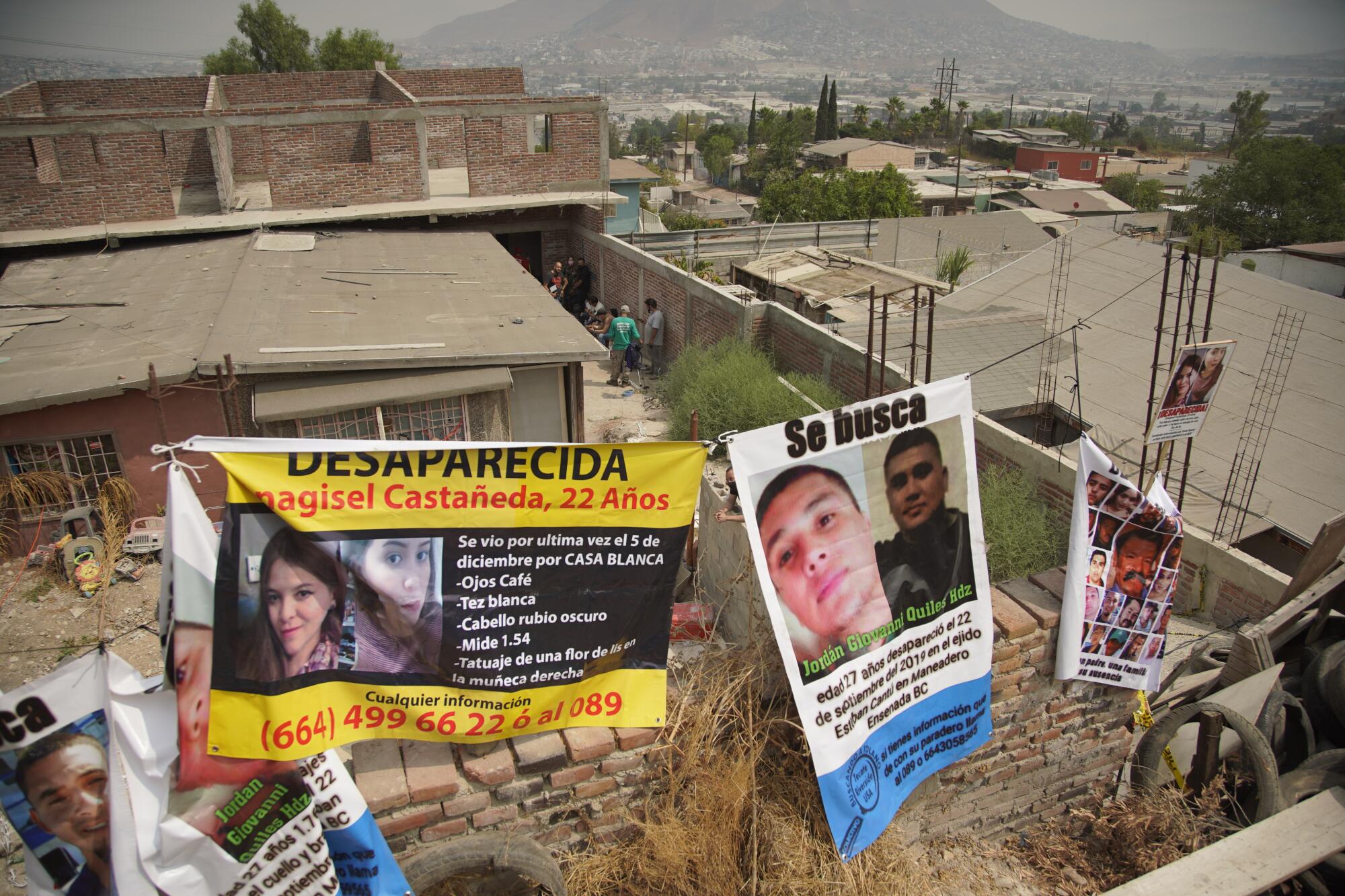
Varajas continued to dig. He found nothing.
One young man taking part in the search dug more than a foot into the ground and stopped. He took a long metal construction rod with a handle and drove it into the earth before pulling it out and smelling the tip.
It’s something he and his companions have done hundreds of times. They say the tip will carry the odor of a decomposing body and let the group know they’ve found something.
This time, the smell was inconclusive. Disappointed, the young man tossed the rod aside and continued shoveling, tossing the dirt onto a growing pile.
As afternoon turned to evening, Martínez grew more and more distraught, sometimes crying as she worked. After hours of digging, she became overheated and unable to catch her breath in a hole now deeper than her own height. She sat down and drank from a bottle of water.
Martínez said she needs to have her son’s remains somewhere she can peacefully visit regularly.
“So I can sit there calmly and tell him: ‘Look, I don’t know how I possibly failed you in life so that you ended up down there and me still here, but I won’t ever leave you,’” she said.
She continued to search until the late afternoon. “I can’t wait until I never have to come back to this hellhole again,” she said. “But I’ll be here until I find him.”
No new bodies were discovered that day. Varajas worked until midnight, until his hands bled.
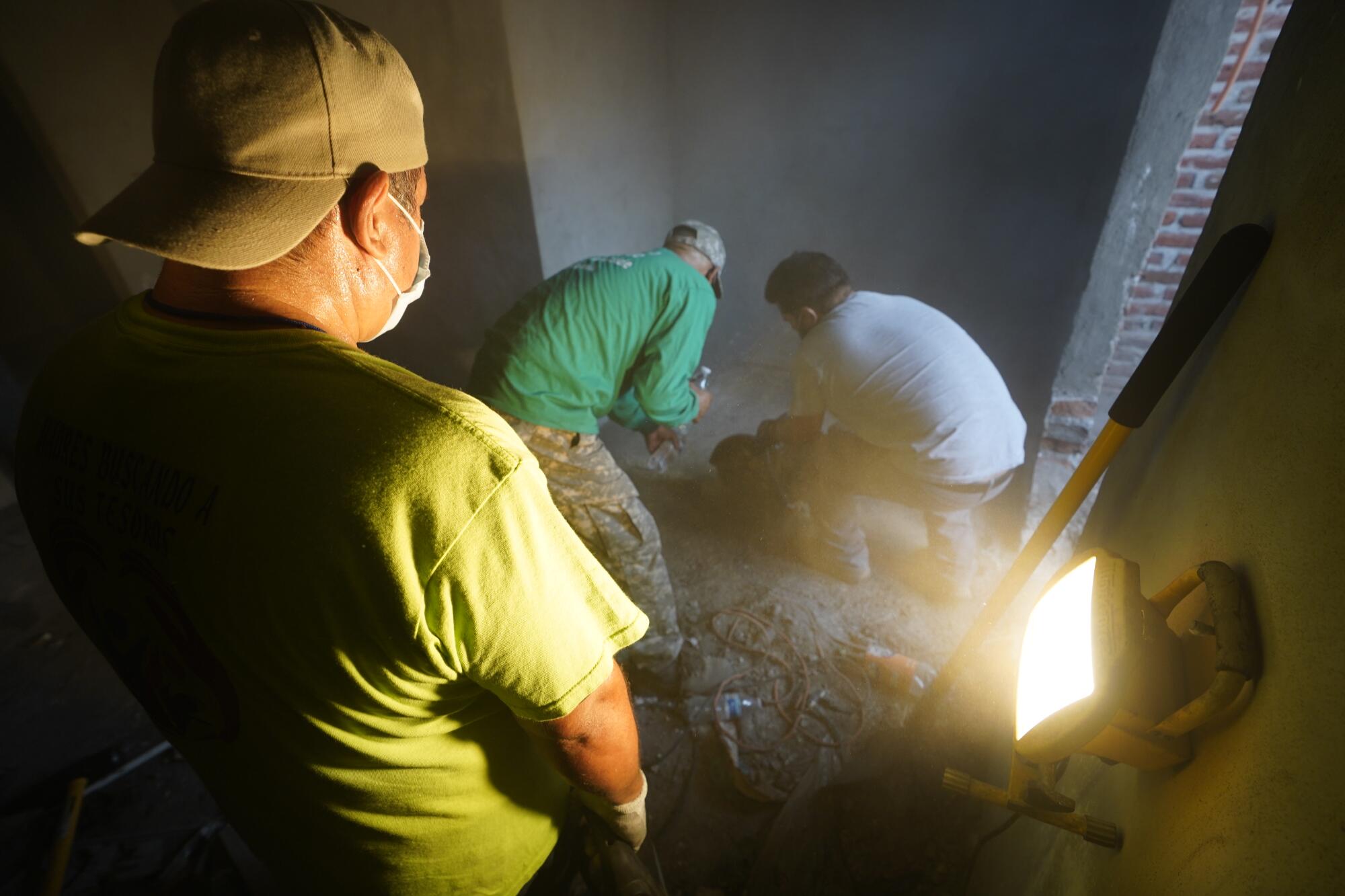
Fry writes for the San Diego Union-Tribune.
More to Read
Sign up for Essential California
The most important California stories and recommendations in your inbox every morning.
You may occasionally receive promotional content from the Los Angeles Times.







